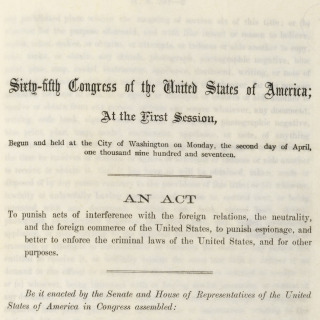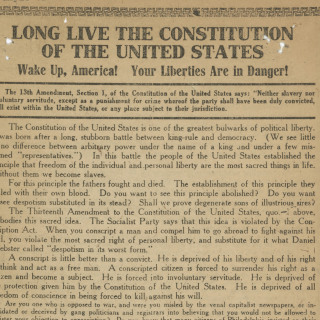Espionage and Sedition Acts 1917
In 1917, Congress passed the Espionage Act in an attempt to block the expression of views harmful to the United States. It was amended and strengthened one year later by the Sedition Act. Over 2,000 people were prosecuted under these laws, sentenced to prison for up to 20 years, and fined up to $10,000. Comments critical of the military draft or objections to war on religious grounds resulted in arrest. The Sedition Act was not repealed until three years after the end of the war. In Schenck v. United States in 1919, the Supreme Court unanimously ruled that the Espionage Act did not violate freedom of speech. Although it is still in force today, protections for free speech have been strengthened.

